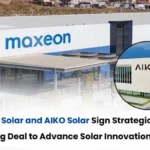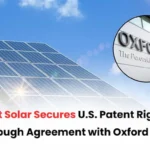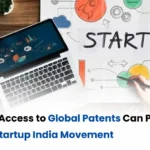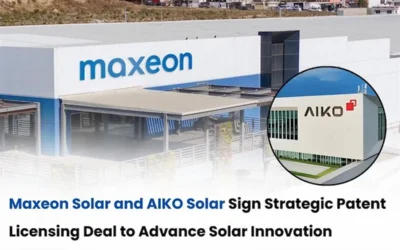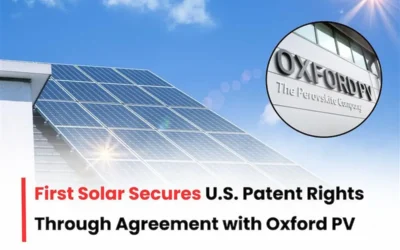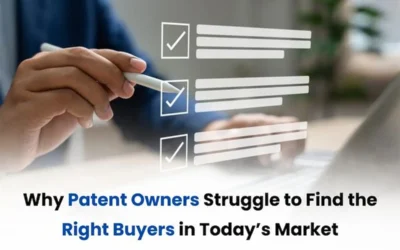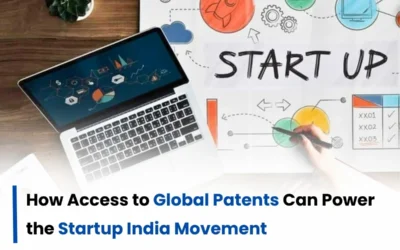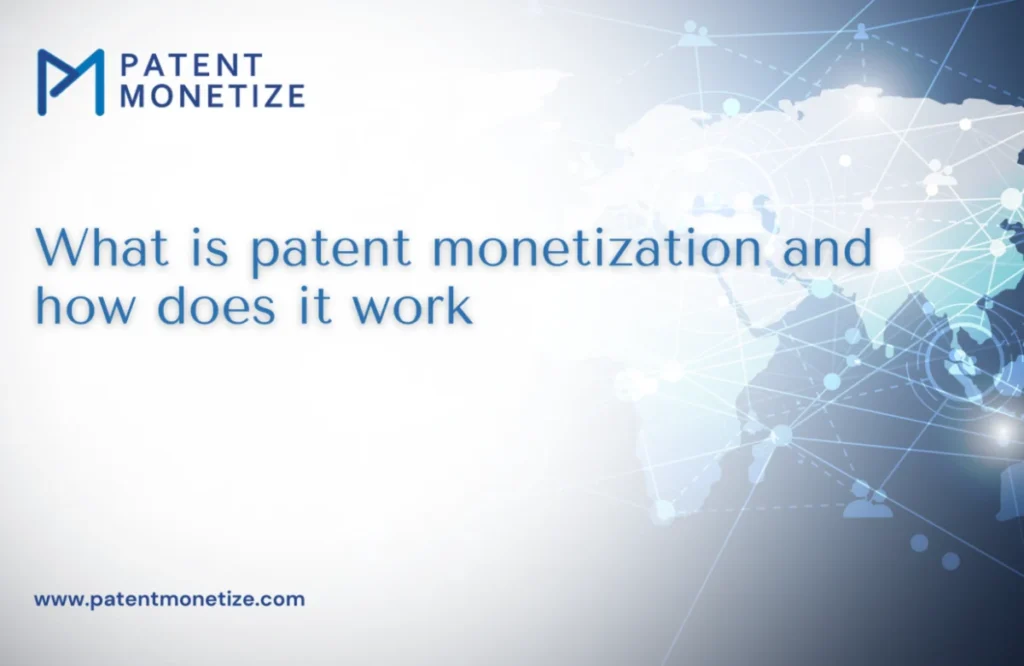
What is patent monetization and how does it work, IP is the bloodline of every thriving business within an innovation-based economy. Whilst patents are one of the more valuable and prized forms of asset in the much wider ranges that comprise IP, owning a patent doesn’t guarantee revenue. And that’s precisely where the phrase patent monetization is used as a means of extracting your ultimate value-generating capabilities from your patents.
Patent monetization is essentially the way through which the revenue is siphoned from a patent through licensing, selling, and sometimes even using those patents to get strategic partnerships. As patents involve innovation in terms of technology, process, or product, any route that provides business at any level with streams of income is very attractive.
In this chapter, we will continue to explain more of what patent monetization is, how it works in the different forms of practice, and how people with companies can work effectively to maximize profits on the value of your intellectual property, be it an individual inventor, a small startup, or large corporation; it’s necessary to understand exactly what patent monetization is-a step towards understanding and working from there.
What is Patent Monetization?
Patent monetization converts the intellectual properties that are created in the shape of patents. You no more need to be sitting and thinking of good stuff that is eventually coming from the patents, instead, you would use strategies on monetary benefits obtained out of that. The whole concept of patent monetization provides an overall sense of converting patented rights and patented exclusivity of patented products in to cash-flows through licensable or direct sale and even by many of such related systems.
This will give the patent it’s time to manufacture, use, and sell an invention-for example, 20 years. Income will not flow directly from it if an inventor, entrepreneur, or business owner who has a patent does not have strategic means that ensure otherwise. That is creating value from one’s IP, be it in selling a patent or licensing into businesses or other ventures, whereby the patent becomes a bargaining chip.
There are many types of patent monetization depending on the goals that a holder of the patent wishes to achieve and the nature of the patent. However, the most common ones include licensing and sales while others include patent pools, patent litigation amongst others.
Importance of Patent Monetization
Patent monetization is highly imperative as it enables business houses and innovators to derive monetary value from intellectual property. In today’s competitive market, a firm’s patent portfolio is its most valuable asset; yet, it will not be utilized if proper monetization has not been done.
- Revenue Generation through Patents and Inventions: A Patent allows for steady revenue streams arising through royalties in licensing or direct sales of patents. You essentially reduce the kind of financial risk you incur whenever you make investments in R&D. You will license your patents to others. They will compensate you for your part of some of those expenses through royalties received from the same patented technology or much more.
- Business Strategy: The strategic application of this patent monetization strategy will indeed strengthen your competitor position, gain investors, or even prevent competition from trying to steal an idea from you.
- Diversification: Monetization for firms with very large portfolios of patents will add new sources of revenue diversification that enhance financial stability.
This means that the more a firm’s patent portfolio is robust, the more valuable it will be to investors because it contains protected assets that cashed in for the generation of money. A firm that has owned and commercialized many patents will place it in a more leadership position concerning the market on its field of interest.
Patent Monetization Process
Depending upon the form of strategy being used, there is a mode of patent monetization. For instance, a few of the most well-known and commonly effective modes include the following:
Licensing
The most common method of patent monetization is licensing, where the patent owner licenses a third party to use the patented technology in return for compensation. This way, the rights of ownership to a patent are maintained by a patent owner but allows that owner to produce money.
There are two kinds of patent licensing.
- Exclusive Licensing: The licensor is granted rights over the use of patented technology singularly, and no one including the licensor may use or license the said technology in the agreed territory or market. Since a competitive edge is given to the licensee, exclusive licenses normally have a more expensive fee or royalty payment.
- Non-exclusive licensing enables the patent owner to authorize more than one party at the same time to practice a patent. Non-exclusivity is very appealing in nonexclusive licensing despite paying generally a lesser royalty to a licensee; since a greater total income may be captured due to an expansive reach to market more customers.
This is normally collected as royalties, a percentage of sales produced through use of the patented technology, or as a one-time payment. This form of monetarization is also advisable to patent owners who would like to retain control over their patents for generation of long-term passive income.
Patent Sales
Another source of money coming from patents is by selling their rights directly to some other company or individual. Selling the patent will definitely transfer to the buyer the full ownership and rights in that patent, with just a one-time amount you can get in return.
Patent selling could be very attractive when:
- You no longer have an interest in exercising control or enforcing the patent.
- You need the cash flow immediately.
- You believe that there is a low long-term value for the patent.
But selling a patent means you give up all rights to it. The original owner cannot collect royalties nor keep any potential benefit that might be gotten out of the technology once a patent is sold. At times, patents sales are necessary for quick access to cash but surely are definitely not the best method in holding onto the long-term interest in the patent if the patent has more worth in the future.
Patent Assertion (Litigation)
Patent litigation sometimes goes by another name, and that is patent assertion. Patent assertion is the filing of a lawsuit against any companies or people who are violating one’s rights by patent infringement. Patent assertion can also be a very good tool for patent monetization. This is because when a party found guilty of infringing your patent, he is required to settle or face compensation in the courtroom
Patent litigation is very high-risk in nature: It can be at times very lengthy and costs an enormous amount of money and acts to drain out financial resources, and at times, it may not bring out a favorable end. Although possessing priceless patents or portfolios, patent holders see patent litigation to be a necessary approach in the enforcement of intellectual property rights.
Patent assertion is another type of defensive strategy. With the help of patents, a firm can deter new entrants in its market and it can also solve disputes out of the court either by licensing or settlement.
Strategic Alliances
The second method of monetizing patents is strategic partnering with other companies. This strategic partnering entails joint ventures, product co-development, and cross-licensing agreements making that way both parties now have access to the other’s technology.
For example, if one has patented technology, he or she can partner with another much bigger firm which has the capacities and reach to market the technology. Then one will be granted licensing fees, equity shares, or even profits from the venture.
These are very useful collaborations for patent owners since they have the chance to make use of other organizations’ assets, networks, and expertise in exchange for patents that are taken to further distance and value.
Patent pools
A patent pool is an example of a situation where there are multiple owners of patents who agree to license their patents collectively as one unit. Patent pools are common in areas of technology that require the concurring agreements of several patents over a particular product or technology, such as telecommunications, software, or automobile.
The benefits of patent pooling for the owners of patents are
There are many salient benefits:
All the patents required can easily be retrieved by the licensees through patent pooling.
Revenue sharing: There is an added revenue source for every patent owner since members share the revenues so generated through licensing.
Patents are distributed between members of the pool. As long as a member is in the pool, all the patents are accessible to members. Thus, the patent infringement risk is minimized.
The patent pool is an excellent way to monetize patents when those patents are very significant to the adopted technology standard or industry.
Why Patent Monetization is Desirable
Patent monetization has various advantages for owners of patents:
- Cash: Cash is the most direct benefit from patent monetization, through licensing, selling, or litigation.
- Diversification of Revenues: Using patents enables firms to utilize additional revenues aside from selling only products and increases stability and growth.
- Market Positioning: A firm’s strong portfolio of patents also speaks to improved market position and makes a firm more attractive to investors, partners, and even potential buyers.
- Strategic Competitive Advantage: Monetization of patents can exploit power, repel competition, and act as a barrier against losing market share.
- Risk Mitigation: Patent licensing or sale recoups the expenses of R&D and innovation. It reduces financial risks associated with the introduction of new products or technologies.
Challenges and Risks of Patent Monetization
Although patent monetization is a rich opportunity, challenges and risks have their own fare share:
- Heavy Legal Expenses– Patent litigation can be very expensive. Attorney fees, cost of courts, and negotiating a settlement can put a big hole into the money that could possibly be recovered from the monetization of patents.
- Invalidity of patents– There is always a chance of invalidity in courts that may take the possible value and cash away from the patent owner. The market swings with the swing or drop in demand within some time period; there is no clarity of what may lead to revenue gains later It takes a very long time to process: like processing licensing, sale, and patent assertion, it may take years or months before sending the money back
Patent Portfolio Monetization Process
Patent portfolio monetization works out by achieving all the provided steps.
- Filtering the patents, filtering, review, and knowing which ones hold the highest values for potential monetization.
- Defining objectives because you require a proper strategy that supports a longer business aim.
- Patent broker or IP lawyer will guide you further and help in your negotiation process.
- License or sell your patents to interested licensees, partners, or buyers. This may involve attending industry events, patent marketplaces, or other in-person events with other companies in your space.
Protect Your Rights: You must retain all the legal documents necessary and assert your rights against infringers to maintain your patents fully protected.
How to Maximize Value from Your Patent Portfolio
A patent portfolio’s wise management and strategy are carried out when this is audited from time to time to determine the relevance and worth of the portfolio. Improvement of your patents in terms of upgrading or enhancing your patents with new features or applications, if possible, makes them more attractive to licensees or buyers.
Patent Add-Ons: Continue to grow and protect your portfolio by continually developing newness and adding it to your inventory.
Link up with industry leaders and their companies that will be interested in your patents and technologies.
The Future of Patent Monetization
Advances in technology will, in general, be patentable, including the fields of AI, biotech, and renewable energy sources, which means growth in patent monetization will continue. The portfolios of patents will be one of the streams of revenue of companies, primarily in sectors in which technology advances are rapid.
This is because block chain and other emerging technologies may redefine how patents are bought, sold, and licensed and therefore create new ways for patent owners to maximize their intellectual property.
Conclusion
Patented monetization is one of the most significant issues when unlocking monetary value in IPs. Businesses or individuals can attain important revenue channels while protecting inventions through strategic licensing, selling, or assertion of their patents. Since you can have your patents in many ways; licensing agreements and strategic partnerships among other things, therefore, the more knowledge and information about these and other varied forms are really what is vital so that when looking to increase or maximize monetary worth of an IP, one attains optimal fiscal success.
